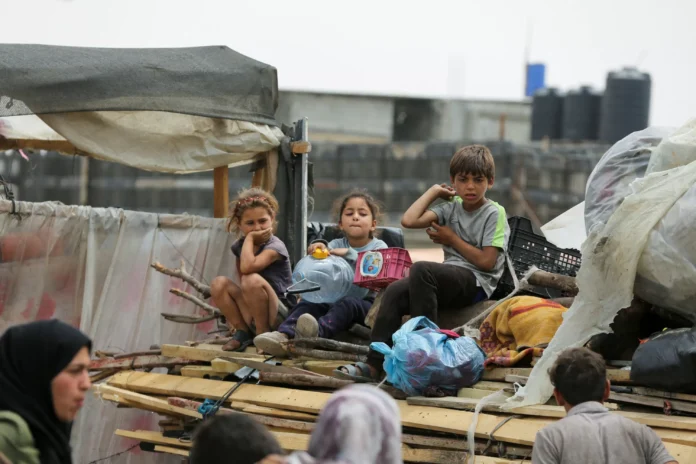Turkey has welcomed the United Nations Security Council’s adoption of a cease-fire resolution in Gaza, according to a statement made by a top presidential adviser on Monday. The decision has been seen as a positive step towards bringing an end to the ongoing conflict in the region.
President Recep Tayyip Erdoğan’s chief adviser, Ibrahim Kalın, expressed Turkey’s support for the resolution, which was adopted unanimously by the 15-member council. The resolution calls for an immediate cessation of all hostilities in the Gaza Strip and calls for the protection of civilians on both sides.
In his statement, Kalın highlighted Turkey’s efforts in pushing for a cease-fire and its continuous support for the Palestinian cause. He stated, “As Turkey, we have always been at the forefront of efforts to end the violence and bring peace to the region. We have consistently called for an immediate cease-fire and the protection of innocent civilians in Gaza.”
Turkey’s stance on the issue has been clear from the beginning. President Erdoğan has been vocal in his condemnation of the Israeli attacks on Gaza and has called for the international community to take action. Turkey has also played a crucial role in providing humanitarian aid to the people of Gaza, who have been suffering from the ongoing violence.
The adoption of the cease-fire resolution by the U.N. Security Council is a significant step towards achieving peace in the region. It sends a strong message to all parties involved that the international community is united in its call for an end to the violence and the protection of innocent lives.
Turkey’s support for the resolution is in line with its commitment to promoting peace and stability in the Middle East. As a country that has always been a mediator in regional conflicts, Turkey is determined to play its part in finding a lasting solution to the Palestinian-Israeli conflict.
The cease-fire resolution also reflects the growing international pressure on Israel to end its military operations in Gaza. The recent bombardment of the Gaza Strip has resulted in the deaths of over 200 civilians, including women and children. The humanitarian crisis in Gaza has worsened, with thousands of people being displaced and facing shortages of food, water, and medical supplies.
The resolution not only calls for an immediate end to the violence but also emphasizes the need for a long-term solution to the conflict. It urges all parties to work towards a comprehensive peace agreement that would address the root causes of the conflict and ensure lasting peace for both Palestinians and Israelis.
The adoption of the resolution has been welcomed by the Palestinian Authority, who have expressed their gratitude to the international community for their support. It is a significant step towards achieving their goal of an independent Palestinian state.
In addition to the Palestinian Authority, many countries have also welcomed the adoption of the resolution, including Iran, Russia, and China. The U.N. Secretary-General, Antonio Guterres, has also hailed the decision, stating that it is a “vital step towards de-escalation and a political solution.”
The cease-fire resolution is a glimmer of hope in an otherwise dire situation. The ongoing conflict in Gaza has caused immense suffering to innocent civilians, and it is high time for it to come to an end. The international community must continue to work towards a lasting solution that would bring peace and stability to the region.
In conclusion, Turkey’s support for the U.N. Security Council’s adoption of the cease-fire resolution in Gaza is a testament to its commitment to promoting peace and stability in the region. The resolution is a crucial step towards ending the violence and finding a long-term solution to the Palestinian-Israeli conflict. It is a positive development that brings hope for a better future for the people of Gaza and the entire Middle East.


